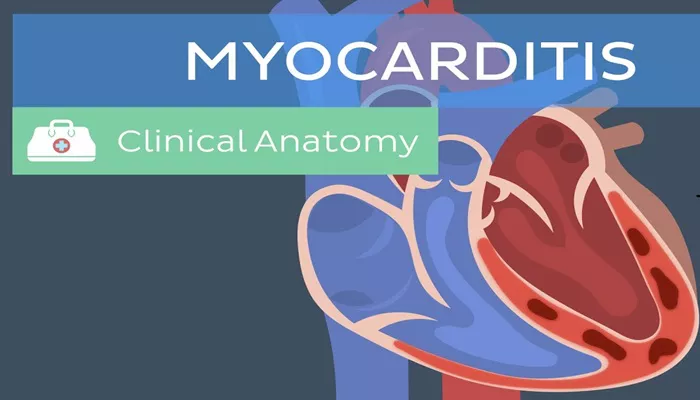Myocarditis is an inflammatory condition affecting the myocardium, the muscular layer of the heart. This inflammation can lead to various degrees of damage to heart tissue and can significantly impact cardiac function. The severity of myocarditis can range from mild cases that resolve with minimal intervention to severe cases that may result in significant complications, including heart failure and sudden cardiac death. Understanding the differences between mild and severe myocarditis is crucial for effective diagnosis, treatment, and management.
Pathophysiology
The underlying pathophysiology of myocarditis involves an immune response to pathogens or other triggers that leads to inflammation. In mild cases, the inflammatory response may be localized and self-limiting, allowing for recovery without significant intervention. In contrast, severe myocarditis often involves widespread inflammation and necrosis of myocardial tissue, leading to impaired cardiac function and potential complications.
Differences Between Mild And Severe Myocarditis
Clinical Presentation
Mild Myocarditis:
Often asymptomatic or presents with mild symptoms such as fatigue, chest discomfort, or palpitations.
Symptoms may mimic those of a viral infection, including fever and myalgia.
Patients may not require hospitalization and often recover with supportive care.
Severe Myocarditis:
Can present with significant symptoms such as acute chest pain, dyspnea (shortness of breath), syncope (fainting), or signs of heart failure like edema (swelling) in the legs.
Patients may experience arrhythmias (irregular heartbeats) that can lead to hemodynamic instability.
Severe cases often necessitate hospitalization for closer monitoring and intervention.
SEE ALSO: How Do You Check for Myocarditis?
Diagnostic Criteria
Mild Myocarditis:
Diagnosis may be based on clinical history and non-invasive tests.
Cardiac biomarkers (e.g., troponin) may be mildly elevated.
Imaging studies like echocardiograms may show normal or slightly altered cardiac function.
Severe Myocarditis:
Diagnosis often requires more comprehensive evaluation, including cardiac magnetic resonance imaging (CMR) or endomyocardial biopsy.
Cardiac biomarkers are significantly elevated, indicating extensive myocardial injury.
Imaging studies typically reveal reduced left ventricular ejection fraction (LVEF) and other abnormalities indicative of severe dysfunction.
Pathological Findings
Mild Myocarditis:
Histological examination may show minimal inflammatory infiltrates without significant myocyte damage.
The inflammatory process is often focal rather than diffuse.
Severe Myocarditis:
Histopathological findings typically reveal extensive inflammatory infiltrates (lymphocytes or eosinophils) along with necrosis of myocardial cells.
The pattern of inflammation is usually diffuse, affecting large areas of the myocardium.
Treatment Approaches
Mild Myocarditis:
Management is primarily supportive; patients are advised to rest and avoid strenuous activities.
Non-steroidal anti-inflammatory drugs (NSAIDs) may be used for symptom relief if necessary.
Severe Myocarditis:
Treatment may include hospitalization for monitoring and advanced therapies such as diuretics for fluid overload or inotropic agents to support heart function.
In cases of severe heart failure, mechanical circulatory support devices or even heart transplantation may be required.
Prognosis
Mild Myocarditis:
Generally has a favorable prognosis; most patients recover completely without long-term complications.
Follow-up evaluations typically show normalization of cardiac function.
Severe Myocarditis:
Prognosis can vary widely; some patients may recover fully with appropriate treatment, while others may develop chronic heart failure or experience sudden cardiac death.
Long-term follow-up is essential to monitor for potential complications such as dilated cardiomyopathy.
Conclusion
Understanding the differences between mild and severe myocarditis is vital for clinicians in diagnosing and managing this condition effectively. While mild cases often resolve without significant intervention, severe myocarditis poses a serious risk to patient health and requires prompt medical attention. Early recognition of symptoms and appropriate diagnostic measures can significantly influence outcomes. Ongoing research into the pathophysiology and treatment options for myocarditis continues to enhance our understanding and management of this complefor evaluation and potential testing for thyroid function.
Related topics:
- How to Speed up Myocarditis Recovery?
- Can You Live A Normal Life with Myocarditis?
- How Does Myocarditis Cause Sudden Death

